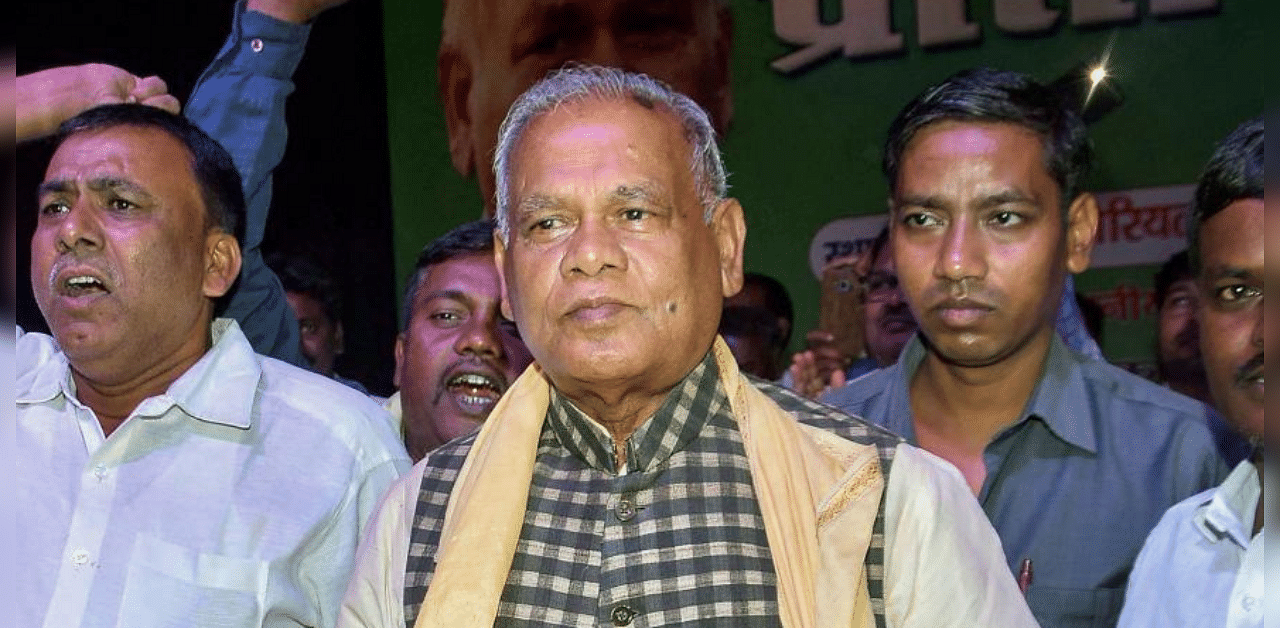
There isn’t a shoe that Jitan Ram Manjhi hasn’t filled in Bihar politics.
Starting his political career with the Indian National Congress in the 1980s, Manjhi moved to the undivided Janata Dal and later to Lalu Prasad Yadav’s Rashtriya Janata Dal. In the last decade, he was inducted into the JD(U) by incumbent Chief Minister Nitish Kumar.
The former chief minister has been a vagabond on Bihar's political spectrum with his most recent pit stop being the Nitish-led NDA alliance in the poll-bound state.
Last month, Manjhi announced his move to rejoin CM Kumar's camp after exiting the Grand Alliance, declaring his unconditional and "unflinching” loyalty to Nitish and stating that he’d “stand by him like a rock.”
However, half a decade ago, things seemed different for Manjhi. After Nitish had resigned as Bihar’s CM following the JD(U)'s humiliating defeat in the 2014 Lok Sabha elections, he had de facto promoted Manjhi, who belongs to the Musahar community, one of the most backward communities in the state, to be the chief minister. Many Opposition leaders, including senior BJP leader and now Deputy Chief Minister Sushil Kumar Modi, had slammed the move with Modi even calling Manjhi a “dummy chief minister”
Things turned sour when Manjhi was forced to resign by his own party to make way for Kumar's re-entry into the political scene, a crisis that ultimately led to his expulsion from the JD(U) after he refused to step down. Manjhi resigned as chief minister in 2015 before the vote of confidence.
The Mahadalit leader, as Manjhi is called, went on to form a new party called the Hindustani Awam Morcha (HAM) in the same year and joined the Mahagathbandhan (Grand Alliance) with the RJD and the Congress.
However, in August this year, the HAM quit the Tejashwi Yadav-led Grand Alliance, citing the “loot and scam-tainted image” of the RJD. His subsequent move to the NDA, although unsurprising, added another element of spice to the elections. He was welcomed back into the fold by the BJP and the JD(U).
Manjhi’s pocket organisation and his image as the face of Dalits make him a key player for parties to widen their reach to the backward communities in the state.
According to a senior Mahagatbandhan leader, Mahadalits are numerically strong at about 16 per cent of the electorate, including 6 per cent Paswans. Manjhi is influential in Magadh, a region that he hails from, which also includes Aurangabad and Gaya. “Even if he commands 6 per cent votes, a minor shift in the vote base could tilt the balance,” the leader added.
With his entry into the NDA, Nitish would look forward to expanding his horizon to reach out to the backward caste voter base. Manjhi’s image as the Mahadalit leader would be crucial as it would fill the void in NDA’s approach created by Paswan’s exit as the poll dates near.
Manjhi, however, has historically been infamous for his flexibility across party lines, something that has turned out to be more of a bug than a feature. The coalitions, both the Grand Alliance and the NDA, have not trusted Manjhi with positions of power or responsibility.
Manjhi has been a safe weapon in the arsenal of Bihar’s politicians, particularly Nitish, who have molded him to fit their electoral needs. As Bihar gears up for yet another election season, Manjhi’s muscle would be put to test yet again.